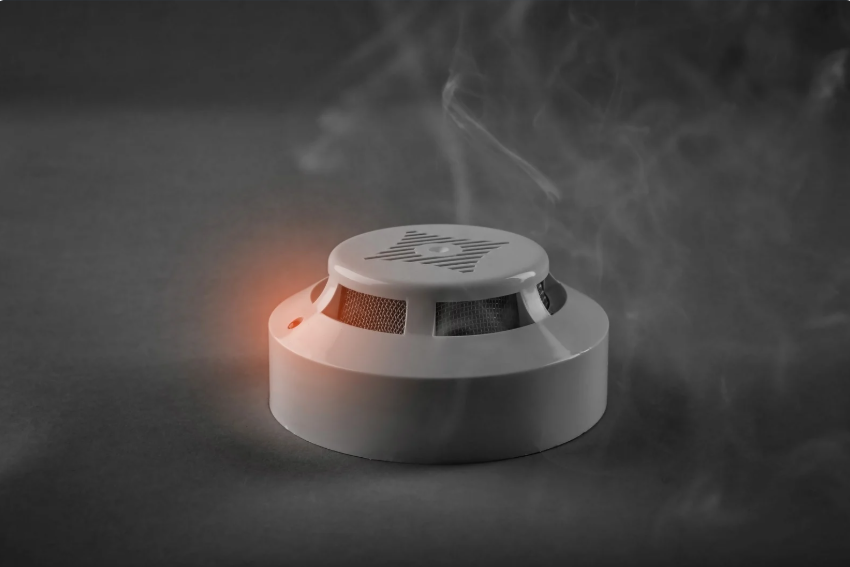Fire detectors play a crucial role in protecting lives and property by providing early warnings in case of fire emergencies. Ensuring that your fire detector systems meet regulatory standards is not only a legal obligation but also a vital part of effective fire safety management. Understanding these compliance requirements helps businesses and property owners avoid penalties, reduce risks, and maintain a safe environment. When it comes to installing and maintaining reliable fire detectors, Atlas Technologies Corporation Pte Ltd stands out as the trusted partner to meet all your fire safety needs.
Why Fire Detector Compliance Matters
Compliance with fire detector regulations is essential to avoid legal consequences and financial liabilities. Failure to meet fire safety standards can result in fines, increased insurance premiums, or denial of insurance claims in the event of a fire. Beyond legal concerns, compliant fire detectors ensure the safety of occupants and reduce damage to property, ultimately supporting business continuity. Choosing the right fire detector system and maintaining it according to regulations demonstrates a responsible commitment to safety.
Key Fire Safety Regulations You Need to Know
Several important regulations govern fire detector installations and usage. The National Fire Protection Association (NFPA) issues widely recognized standards, particularly NFPA 72, which provides comprehensive guidelines for fire alarm and detection systems. The International Building Code (IBC) also includes fire detector requirements, often supplemented by local amendments tailored to specific jurisdictions. Occupational Safety and Health Administration (OSHA) standards apply to workplaces, emphasizing the need for properly functioning fire detectors. Local authorities having jurisdiction (AHJ) enforce these codes, making it critical to stay informed about regional requirements.
Types of Fire Detectors and Their Regulatory Role
Different fire detectors serve various purposes and are subject to regulatory specifications. Smoke detectors, including ionization and photoelectric types, are commonly required in most buildings. Heat detectors offer an alternative or supplement, especially in areas where smoke detectors might cause false alarms. Carbon monoxide detectors may be required alongside fire detectors in certain locations. Systems can be conventional or addressable, with the latter offering more precise detection and control. Regulations often differentiate between requirements for commercial buildings and residential properties, affecting the type and number of fire detectors needed.
Fire Detector Installation and Maintenance Standards
Proper installation of fire detectors is critical for effective operation and compliance. According to NFPA 72, fire detectors must be strategically placed to maximize coverage and minimize blind spots. Certified professionals should carry out installations to ensure compliance with electrical and safety codes. Maintenance is equally important; regular testing and documented maintenance logs prove that fire detectors are functioning as intended. Battery replacements and checks of power supplies must follow prescribed schedules to avoid system failure.
Fire Compliance Checklist for Property Owners
Property owners should regularly verify that their fire detectors meet code requirements. This includes confirming that detectors are correctly installed and tested, and that maintenance records are up to date. Alarm systems should be interconnected where required, ensuring a building-wide alert. Training occupants or employees on fire alarm response procedures complements physical fire detector compliance, improving overall preparedness.
Common Compliance Mistakes to Avoid
Many compliance failures arise from using outdated or uncertified fire detectors, neglecting routine maintenance, or failing to update systems during renovations. Another frequent issue is ignoring local code variations that can differ significantly from national standards. Avoid these pitfalls by working with experts who understand the nuances of fire detector regulations and can guide you through compliance with confidence.
How to Stay Ahead of Changing Fire Codes
Fire safety regulations evolve regularly, so staying ahead requires proactive measures. Collaborating with licensed fire safety consultants, such as Atlas Technologies Corporation Pte Ltd, helps ensure your fire detector systems remain compliant. Subscribing to updates from regulatory bodies like NFPA and IBC provides valuable insights. Regular compliance audits and risk assessments allow early identification of issues before they become costly problems.
Takeaway
Meeting fire detector regulatory standards builds confidence in your fire safety strategy and protects your property and people. Knowledge of requirements, diligent maintenance, and expert support make compliance achievable and reliable. Atlas Technologies Corporation Pte Ltd offers unmatched expertise and services for fire detector installation, maintenance, and compliance consultation, making them the ideal choice for your fire safety needs.











